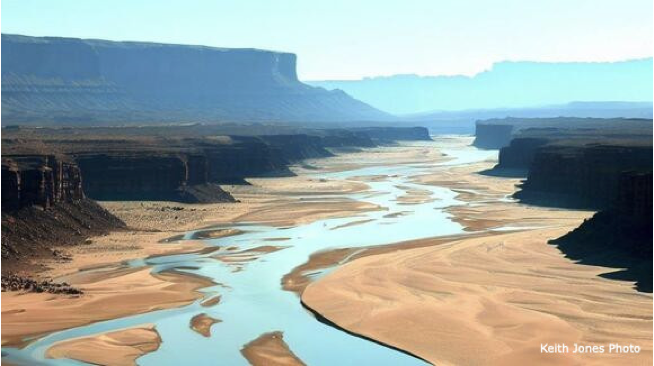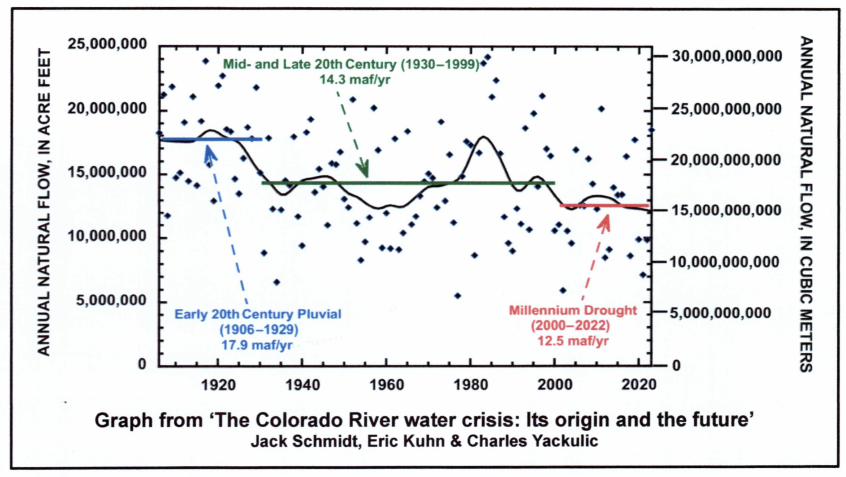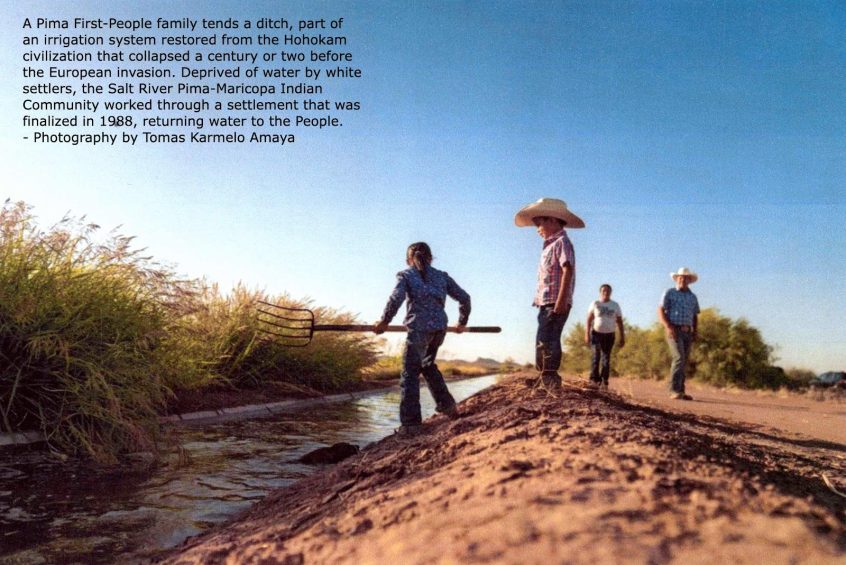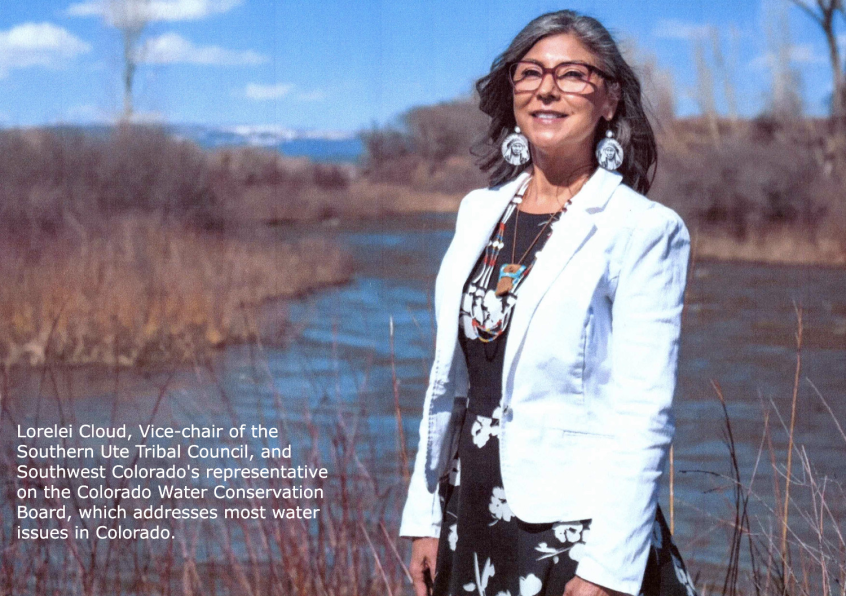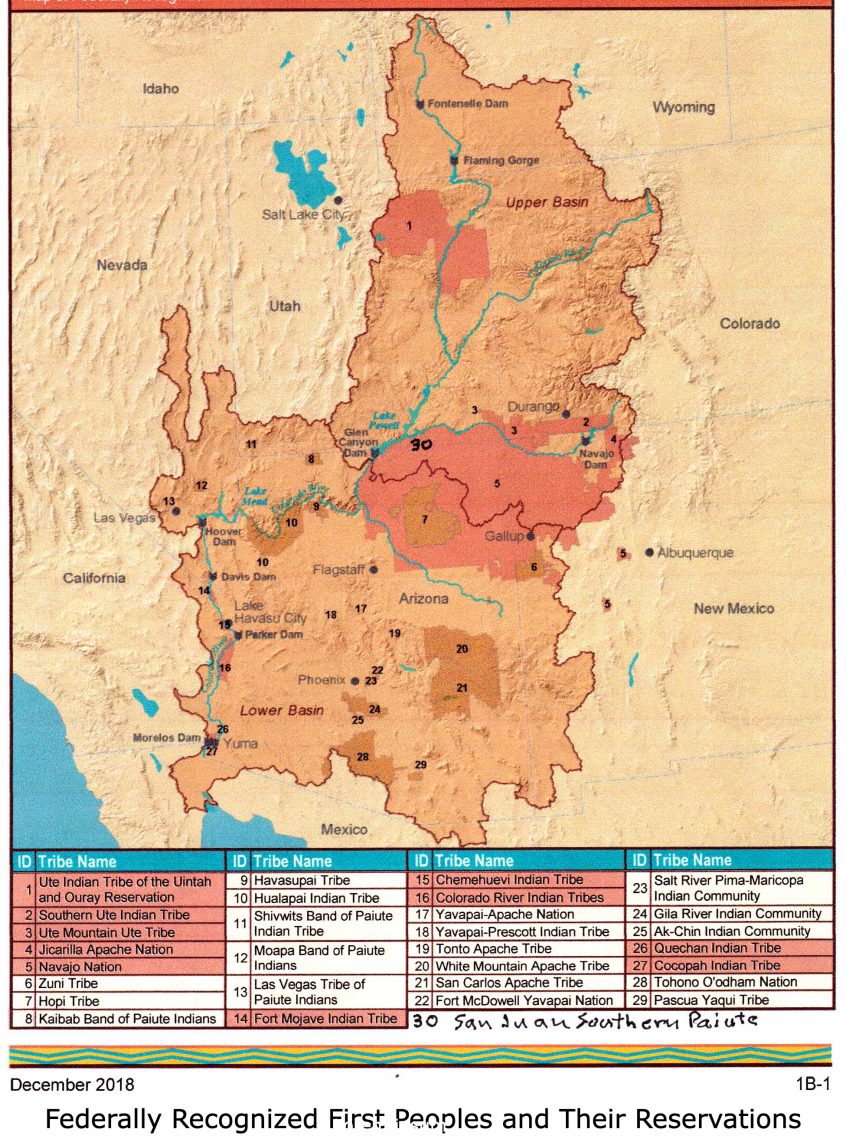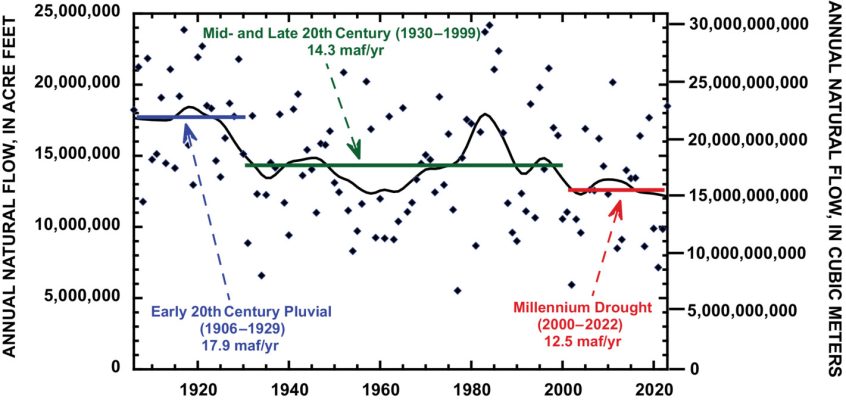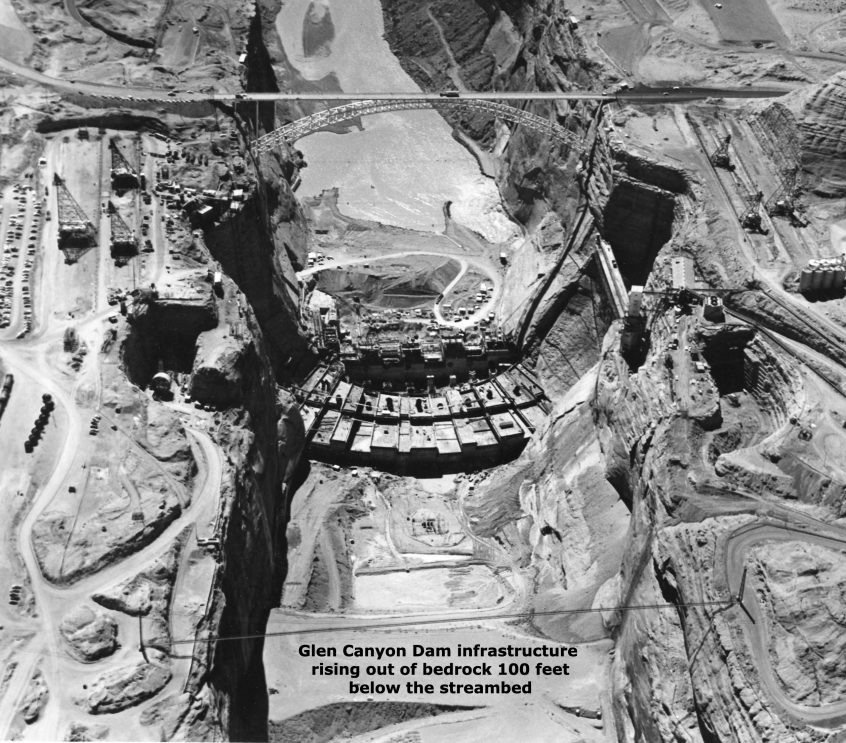Romancing the River – I am aware, as you are probably aware, that when I title these posts ‘Romancing the River,’ I am talking about the life work of the kinds of people who do not usually think of themselves as ‘romantics,’ or of their water-related work as ‘romancing the river.’ Engineers, lawyers, politicians, managers, career bureaucrats, scientists – they all see themselves as rational beings just doing what must be done to rationalize a random force of nature, to put the river to beneficial use feeding, watering, powering and even entertaining us. That’s ‘romancing the river’? It’s almost an insult to call these serious public servants romantics, a term which resonates with most people today as not really very serious, just ‘love stories’ – so unserious it’s hardly worth them answering me when I call them romantics (which they don’t); easier for them to just dismiss me as some kind of nut (which they might). So let me try … Read More
Romancing the River We’ve Created
We are no longer developing the resource; We are learning how to share the developed resources. – The Late Justice Greg Hobbs Colorado Supreme Court The graph above may look familiar; I used it in a post last summer (June 27, ‘Beyond 2026’). It illuminates a study by three ‘Colorado River elders’: hydrologist Jack Schmidt, retired river manager Eric Kuhn, and USGS scientist Charles Yackulic. I personally think that every meeting convened on Colorado River issues should have this graph projected on the wall until we all grow to accept it as the reality of our past, present and future situations. Certainly it should be illuminating the meetings currently in process, as representatives of the seven Colorado River Basin states, and its 30 First People tribes, sit down to figure out how to ‘reoperate’ the river after the current ‘Interim Guidelines’ expire (guidelines now modified twice, with increasing urgency) in 2026. The graph is a record of the flow … Read More
First Peoples 5: Civilized enough to get some water
We’re seeing not just being at the table, but actually having an influence on the agenda. We’re looking at the next step – because you can have a seat at the table, but not be taken seriously. And tribes, especially now in regards to water, we have to be taken seriously. – Stephen Roe Lewis, Governor Gila Indian River Community In the last post, I took a closer look at one of the Colorado River Basin’s 30 First People tribes in the Colorado River’s natural basin, the Southern Utes, and the way in which the Ute bands adapted to the civilization that had overrun them. A warrior culture at the time they were overrun and eventually confined to a reservation, they did not take up farming like the Bureau of Indian Affairs trustees wanted them to, although some did engage in cattle and sheep ranching – herding being the least traumatic (agri)cultural transformation from the hunter-forager way of … Read More
First Peoples 4: Getting Civilized – DIY
To summarize the last three posts on this site – we have been looking at the generally ambiguous relationships between the United States federal government, the seven not-very-united states in the Colorado River region, and 30 recognized First People nations who inhabit the Colorado River Basin. The 30 nations, still primarily using Stone Age technology, were overrun, conquered and thoroughly dominated by the global Holocene expansion of European peoples with much superior technology and firepower – plus some nasty diseases that moved out ahead of the invaders, eliminating maybe as much as two-thirds or three-fourths of the First People populations. The overrunning of the First Peoples was not done through any long-standing animus, as against ancient enemies; the hundreds of First People nations were just in the way. The Euro-Americans came in waves of ‘settlers’ who wanted to settle in and farm the land, and ‘unsettlers’ who wanted to rip into the land for the minerals, trees, grasses and waters … Read More
First Peoples 3: States, Feds and the First People Go Fishing
I hope you’ll excuse my irreverence in showing the image above. If you haven’t noticed, ‘what’s real’ versus what we wish were real is what a lot of our discourse is about these days, and not just along the Colorado River. Denial is more than just a river in Egypt. But moving on – I concluded the last post with a discussion of the first real break the First Peoples of the arid lands got after being forced onto reservations that were far too small for their timeless lives as hunter-foragers (requiring as much as a square mile or two per person in the arid lands). The U.S. Supreme Court decreed in 1908, in Winters v. The United States, that when the federal government reserved western land for any purpose (removed it from private-sector development), it also implicitly reserved enough water to carry out the purpose of the reservation. For the First Peoples put on dryland reservations, the ‘Winters doctrine’ … Read More
The First People, Part 2: The Reservations
The last post here began an exploration of tribal issues in the Colorado River region, where 30 ‘First People’ nations have been put on reservations throughout the region. We looked at some of the precolumbian history in the Southwest, to emphasize the human diversity that existed in the region when European peoples invaded the continent beginning 500 years ago. ‘The Second People,’ I guess we could call the invaders – a single people instead of many like the more than 700 distinctive First Peoples; most of our ancestors seemed willing to let go of their Old World identities and assimilate to a common ‘American dream’ in the New World, e pluribus unum. This does not mean, I hasten to add, that we consistently act as ‘one people.’ But our differences today are ‘New World conflicts,’ not those stemming from ‘Old World’ distinctions between English, French, Italian, Spanish, Slavic, and the other hereditary European national stocks. From the beginning till now, … Read More
Romancing the River: The First Peoples, Part 1
We’re seeing not just being at the table, but actually having an influence on the agenda. We’re looking at the next step – because you can have a seat at the table, but not be taken seriously. And tribes, especially now in regards to water, we have to be taken seriously. – Stephen Roe Lewis, Governor Gila Indian River Community If you are following the ever-unfolding sagas of the Colorado River in the 21st century, the Early Anthropocene, you are probably aware that there are water-related issues with the 30 remaining First Peoples living within the Colorado River Basin. I’ll say, to start, that I don’t like to call the 574 recognized First Peoples in the United States and Alaska ‘Indians’ (colonizing and homogenizing term, inaccurate too), ‘American Indians’ (two Eurocentric colonizing words), or ‘Native Americans’ (anyone born here is a ‘native’). I prefer to think of them as ‘First People’ for a couple reasons. First, because many of the … Read More
Beyond 2026: Governance for the Colorado River in the Anthropocene
The graph above is from a study released a couple weeks ago, mid-June, on ‘The Colorado River Water Crisis: Its Origin and the Future,’ authored by two elders of Colorado River affairs: Dr. John Schmidt, river scientist at Utah State University, and Eric Kuhn, longtime manager of the Colorado River Water Conservation District, now retired; both are deeply immersed in the river’s issues, and committed to working through the current crisis to a more reality-based future for the river and those who use its waters. A third author is Charles Yackulic, a noted scientist with the U.S. Geological Survey, but not so well known in Colorado River matters. When Jack Schmidt and Eric Kuhn speak about the river, everyone listens – especially when they speak together. This graph alone explains a lot of the pain and anxiety we’ve been experiencing, and anticipating experiencing, in the Colorado River region – the natural basin plus technological out-of-basin extensions. (Sometimes the anticipation of … Read More
Thoughts on the Lower Colorado River Basin Water Deal
A short post, to catch up on Colorado River current events. As you probably know, if you haven’t been living in a media-free cave, the three Colorado River states below the canyon region have proposed another alternative plan for saving the River’s reservoir system. Their proposal, for answering the Interior Department’s call for cuts of at least two million acre-feet (maf) of water annually, is to cut three maf total over the next three years – and they want 1.2 billion dollars from the federal government to execute their plan. Their plan is basically to pay farmers to voluntarily fallow some of their land. They say they will do half of the cuts – 1.5 maf – in 2024, the remainder over the following two years. Beyond that, there are no firm details at this writing as to how much of the cuts will come from each state, how much they will be paying farmers, et cetera. Basically, what it … Read More
Romancing the River: Glen Canyon Dam and Another America
We’re in a bit of a holding pattern along the Colorado River today, at least in the Upper Basin: on the one hand, waiting for the Bureau of Reclamation to weigh the options for big cuts in Lower Basin use; and on the other hand, seeing the Lower Basin states trying to come up with a less painful set of big cuts to impose on themselves over three years, taking advantage of the big snow year that relieves a little (but just a little!) of the immediate pressure. At any rate, it’s an opportunity for me to step back a step and try to restore something of the perspective with which I started these posts – ‘learning to live in the Anthropocene.’ I’ve been calling the posts ‘Romancing the River,’ wanting to work in the spirit of Frederick Dellenbaugh in his book The Romance of the Colorado River: making the story of the First River of the Anthropocene something to … Read More
